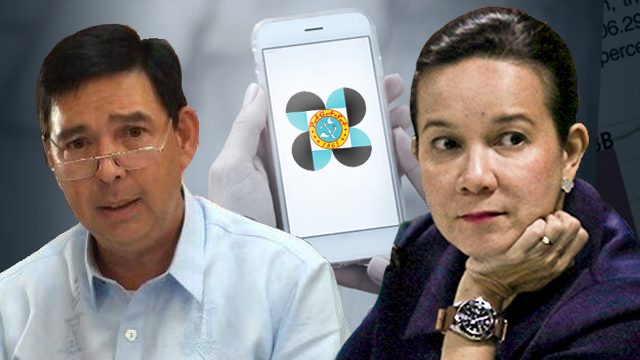SUMMARY
This is AI generated summarization, which may have errors. For context, always refer to the full article.

MANILA, Philippines – Senators Ralph Recto and Grace Poe identified the National Disaster Risk Reduction and Management Council (NDRRMC) as the cause of delay in sending text alerts to citizens during disasters.
The current process requires various agencies directly involved in making forecasts – like the Philippine Atmospheric, Geophysical and Astronomical Services Administration (Pagasa) and the Philippine Institute of Volcanology and Seismology (Phivolcs) – to first submit to the NDRRMC executive director for approval the wording of their text alerts. The approved text will then be sent to telecommunications companies for blasting.
This authority of the NDRRMC, Recto pointed out, isn’t provided in the law but appeared to have been inserted in the implementing rules.
Recto and Poe wants this red tape cut.
“This is a cumbersome process. Why should there be middle man in a process that should be characterized by speed?” Recto said in a statement on Thursday, July 27. “Why not just allow Pagasa, in the case of typhoons, or Phivolcs, if it concerns earthquakes, to communicate directly with telcos?”
Poe said in a separate statement, “Several reports have reached us that mobile subscribers have not received any alert about the storm since yesterday.”
She added: “Disasters need not be of epic proportions before the NDRRMC and the telcos make their move and alert the people. The law was primarily crafted as a preventive measure, so that the public can prepare and to avoid casualties.”
Recto also said the NDRRMC has no “value-added input” to an alert “based on science and crafted by scientists,” and as such the respective agencies should be able to send these messages themselves, at least with editorial help for crafting short messages.
Both Recto and Poe cited Republic Act 10639 – the Free Mobile Disaster Alerts Act – which states that in the event of an impending tropical storm, typhoon, tsunami, or other calamities, mobile phone service providers are mandated to release regular alerts at no cost to consumers.
Under the law’s implementing rules and regulations, information sources that count within its purview aside from Pagasam and Phivolcs, are the Philippine Nuclear Research Institute, the Mines and Geosciences Bureau, the Bureau of Fire Protection, the Philippine National Police, the Armed Forces of the Philippines, and the Department of Health. – Rappler.com
Add a comment
How does this make you feel?
There are no comments yet. Add your comment to start the conversation.